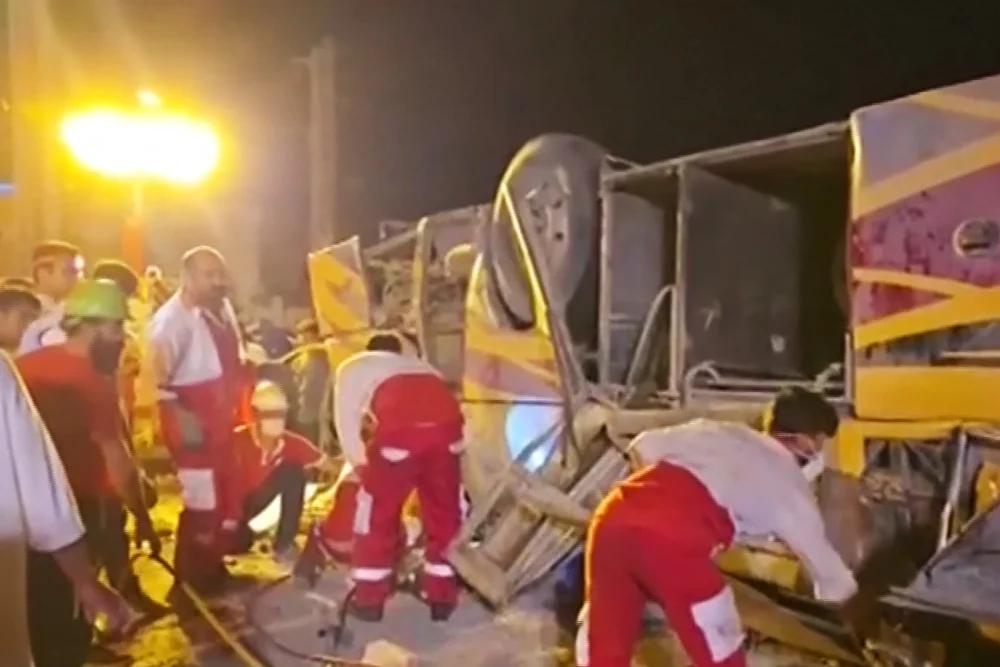TEHRAN, Iran — A bus carrying Pakistani pilgrims overturned in central Iran late Tuesday, resulting in 28 fatalities and 23 injuries, Iranian state media reported on Wednesday. The accident occurred in Yazd province, highlighting ongoing concerns about road safety in the region.

According to preliminary investigations by Iranian traffic police, the crash was caused by a technical defect in the bus’s braking system. The crisis management director general of Yazd province provided a breakdown of the casualties to state television, stating, “Unfortunately, 11 women and 17 men lost their lives in this accident. Seven of the injured people are in critical condition and six injured people have now left the hospital.”
Iranian authorities have invited Pakistan’s consular services to Yazd province to assist in the aftermath of the accident. This gesture underscores the diplomatic implications of the tragedy, given the victims’ nationality.
Nasser Kanaani, spokesperson for Iran’s Foreign Ministry, expressed condolences via social media platform X, saying, “We express our sincere sympathy to the neighboring and brotherly government of Pakistan and the bereaved families. Relevant authorities in Iran are actively pursuing relief and treatment services.”

The accident coincides with the ongoing Arbaeen pilgrimage, a significant Shiite Muslim observance currently taking place in Iraq’s Karbala Governorate. This event, which marks the 40th day of mourning following the martyrdom of Imam Hussein bin Ali, grandson of Prophet Muhammad and a central figure in Shiite Islam, attracts millions of pilgrims annually.
While the specific destination of the Pakistani pilgrims involved in this accident was not immediately clear, the timing suggests a possible connection to the Arbaeen pilgrimage. Many pilgrims from Pakistan and other countries often travel through Iran en route to Iraq for this religious observance.
This tragic incident raises questions about road safety measures for pilgrims and other travelers in the region. Iran has faced criticism in the past for its high rate of traffic accidents, often attributed to poor road conditions, inadequate vehicle maintenance, and driver error.

The accident also highlights the risks associated with long-distance religious pilgrimages, which often involve extended bus journeys through challenging terrains. As authorities continue their investigation and relief efforts, this incident may prompt renewed discussions about safety protocols for pilgrim transportation across international borders.
Pakistani authorities have not yet issued an official statement regarding the accident. However, the loss of life is likely to resonate deeply within Pakistan, potentially leading to calls for increased safety measures and diplomatic cooperation to protect pilgrims traveling abroad.
As rescue and recovery efforts continue, both Iranian and Pakistani officials will face the challenging task of repatriating the deceased and ensuring proper care for the injured. The incident serves as a somber reminder of the risks inherent in long-distance travel and the importance of international cooperation in addressing such tragedies.


